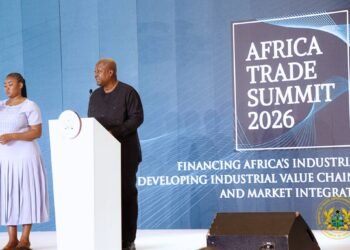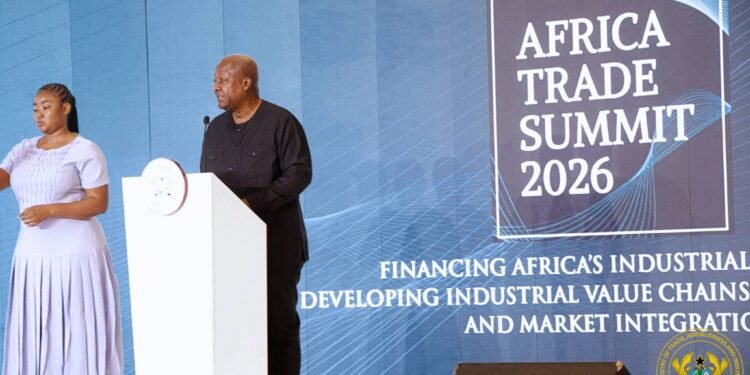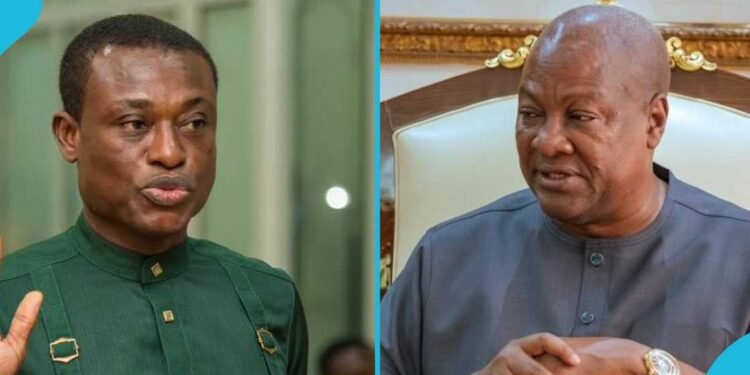Mr. Isaac Kwasi Mensah, a Financial Analyst and Portfolio Manager at SIC Financial Services Limited, has stated that the recent $3 billion IMF loan approval for Ghana will eventually influence the direction of the Ghana Stock Market and also attract foreign investment back onto the local bourse.
Following the International Monetary Fund’s approval to disburse the $600 million first tranche of the $3bn loan to Ghana, experts unanimously agreed that it is a certificate of confidence for the Ghanaian economy.
Mr. Isaac Kwasi Mensah, while also reacting to the development in an interview with the Vaultz News, noted that the dip in the performance of the Ghana Stock Exchange (GSE) since last year is mainly due to the struggles the country went through economically since the emergence of the COVID-19 and the Ukraine-Russian war, but said the IMF loan will help reset the market.
“Last year was a tough year for the bourse and this year proved to be roller-coaster ride for the Ghana Stock Exchange as it experienced both bullish momentum and bearish pressure due to a mix of positive and negative developments in the economy.
“I expect that the stock market performance to interact positively with the recent IMF decisions regarding Ghana. So, the approval is a good news for the Ghana Stock market because it will help influence the direction of the market.”
Mr. Isaac Kwasi Mensah
Mr Kwasi Mensah pointed out that focusing on investing in projects with dollar returns must be an urgent necessity, and a clear approach must be adopted in the medium and long term.
“I expect the stock market to witness a price reset through an expected correction that will be accompanied by stability. The market could witness a profit-taking process driven by the loan approval, which is likely to recycle liquidity between some stocks and others.
“The loan disbursement is a measure of confidence in the Ghanaian economy, and will work to attract more foreign investments and funds from international investors.”
Mr. Isaac Kwasi Mensah
The Impact on the Stock Market
Mr Kwasi Mensah noted that though the impact on the stock market at the present time is positive, however, he said the market carries a risk, especially since there is an expected correction which will cause the upward trend of the stock market.
Mr Kwasi, meanwhile, advised long-term investors to buy and hold, and short-term traders to trade between support and resistance, pointing out that the important support area is at 2,550 points.
The analyst explained that there is a positive effect related to the stock market, as the foreign investor is given a certificate of confidence through the IMF rescue in the low risk Ghanaian market compared to other emerging markets in the sub region, which encourages the return of foreigners to the Ghana Stock Exchange.
The expert noted that the IMF loan will have an overall impact on the economy and help the cedi to rediscover its lost strength against the dollar.
Since the announcement of a likely breakthrough in the IMF negotiations, Ghana’s cedi and eurobonds recorded gains in anticipation of the International Monetary Fund board approval for a $3 billion bailout.
Ghana’s currency strengthened 5.3%, the most since April 3. International bonds of various maturities also rallied, accounting for eight of the ten top performers in emerging markets last week.
The IMF Rescues Ghana
Meanwhile, the Executive Board of the International Monetary Fund (IMF) last week approved a 36-month arrangement under the Extended Credit Facility (ECF) in an amount equivalent to SDR 2.242 billion (around US$3 billion, or 304 percent of quota). The program is based on the government’s Post COVID-19 Program for Economic Growth (PC-PEG), which aims to restore macroeconomic stability and debt sustainability and includes wide-ranging reforms to build resilience and lay the foundation for stronger and more inclusive growth.
The Executive Board’s decision followed with an immediate disbursement of the first tranche to Ghana equivalent to SDR 451.4 million (about US$600 million).
Large external shocks in recent years exacerbated Ghana’s pre-existing fiscal and debt vulnerabilities, resulting in a loss of international market access, increasingly constrained domestic financing, and reliance on monetary financing of the government. Decreasing international reserves, Cedi depreciation, rising inflation and plummeting domestic investor confidence, eventually triggered an acute crisis.
Since then, Ghana has taken bold steps to tackle these deep challenges, including by accelerating fiscal adjustment. The government has also launched a comprehensive debt restructuring to address severe financing constraints and the unsustainable public debt.
According to the IMF, key policies under the Ghana’s program include large and frontloaded fiscal consolidation to bring public finances back on a sustainable path, complemented by efforts to protect the vulnerable.
The IMF indicated that the adjustment effort will be supported by ambitious structural reforms in the areas of tax policy, revenue administration, and public financial management, as well as steps to address weaknesses in the energy and cocoa sectors.
Appropriately tight monetary and flexible exchange rate policies will help bring inflation back to single digits and rebuild international reserves. The program also has a strong focus on preserving financial stability and encouraging private investment and growth.
The program will help Ghana overcome immediate policy and financing challenges, including through its catalytic effect in mobilizing external financing from development partners and providing a framework for the successful completion of the ongoing debt restructuring.
READ ALSO: IMF Loan: No Assurance For Fund’s Requisite Use, Accountability























